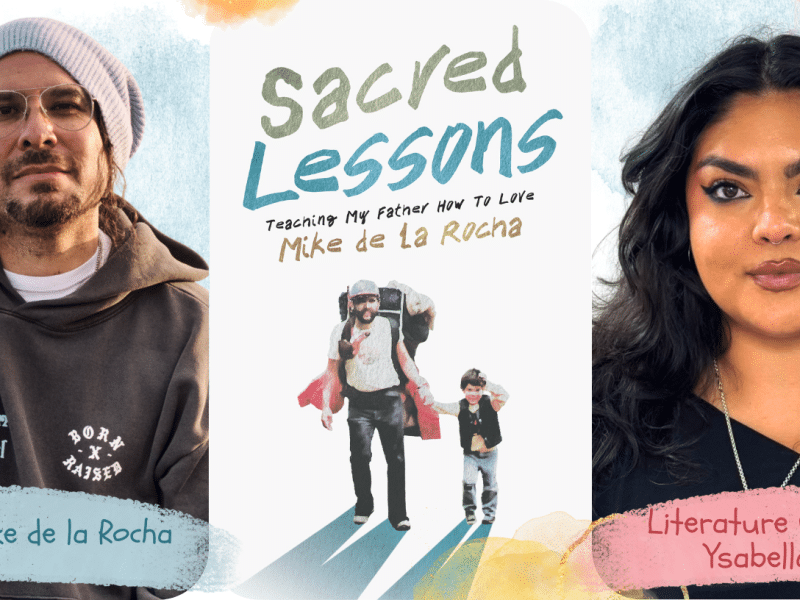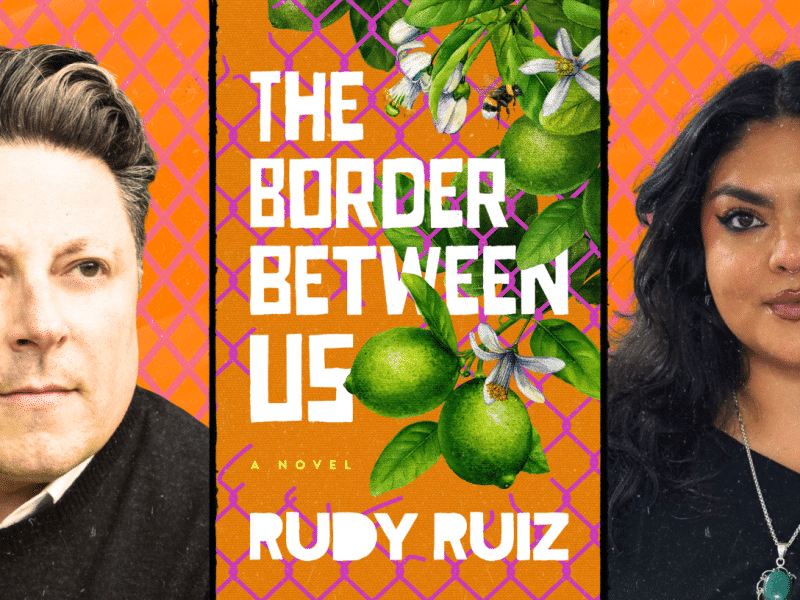Kayden Phoenix’s New Graphic Novel Proves That Latinas Can Be Superheroes Too
Film director/writer Kayden Phoenix was tired of seeing how Latinas were portrayed in films, so she created a graphic novel to help break down stereotypes.

Film director/writer Kayden Phoenix was tired of seeing how Latinas were portrayed in films. “We’re much more than the typical chola, maid, sex worker, or ‘illegal’ that doesn’t speak English,” said Phoenix.
As her own act of breaking down stereotypes, she created the graphic novel Jalisco, a crime-fighting folklorico dancer who is searching for her mom in the midst of the femicide in Mexico.
To avoid tokenizing her characters, Phoenix’s comic book series includes four other Latina superheroes. While the big screen is her ultimate goal, a graphic novel was the more accessible option.
“I can afford to pay my artists. I can afford the publishing. As opposed to can I afford a multi-million feature film? No, I can’t afford to fund that yet,” Phoenix told Luz Collective in a recent phone interview.
Jalisco is personal to Phoenix because she incorporated parts of her family throughout the story. Phoenix grew up watching her mom, who is her hero, dance folklorico. That’s why Jalisco, named after her grandma’s birthplace, uses the same dancing style.
“She’s not necessarily a [traditional] superhero because she has no powers,” said Phoenix. “But Batman has no powers. He’s just a rich guy. It’s the same mentality.” With Jalisco, it’s quite the opposite in that she and her mother are poor. Jalisco is taken under the wing of Adella, the matriarch of the Latina group called the Adelitas. Adella and the women train her to fight against Malinche, the fictional character behind the femicide in the graphic novel.
Phoenix grew up hearing about the femicides in Ciudad Juarez, where her other grandmother lives and the Mexican border town to the sister city of El Paso, Texas. Phoenix said she uses her graphic novels to address issues that pain her or make her sad. The characters in her future novels will tackle subjects like Immigration and Customs Enforcement (ICE), trafficking and school shootings. “Who gives (the victims of femicide) their justice? Nobody,” said Phoenix. “At least in my graphic novel, I can give them their justice.”
Through a team of Latina artists, Jalisco was produced in six months and released last fall. Phoenix didn’t have any prior graphic novel experience, but she grew up watching action films and Disney animations with her family. To her, graphic novels are like short form features. Instead of a moving picture, a story is told through stills. To prepare for her project, she read The Watchmen, a prolific ‘80s graphic novel by Alan Moore and Dave Gibbons about a group of mostly retired superheroes.
Phoenix wanted to bring Latina representation on and off the page, so she searched the #visiblewomen hashtag on Instagram to recruit female artists. There she found Mirelle Ortega, based in Los Angeles, one of the colorists who added color to the black and white line art.
Ortega was working on other projects simultaneously, so she recruited two friends, Addy Rivera Sondra and Gloria Felix, to split the work between them. “It wasn’t part of the original plan but I’m always open to adapting to better situations and it worked out amazingly,” said Phoenix.
Ortega also helped Phoenix search for other team members with a tweet. Phoenix received 60 responses and through that, she found an inker, Hannah Diaz, who defines the pencil drawings with ink, and an artist, Amanda Julina Gonzalez. Sandra Romero rounded out the team as the letterer who drew all the text in the comic.
Phoenix was so passionate about increasing Latina representation that she started the non-profit Chicana Director’s Initiative two years ago. The members receive sponsorships and resources to further their film careers. Her primary focus is to show the film industry that there are Latina film directors and cinematographers capable and available to work. “Hire Latina artists,” said Phoenix. “Don’t just say you can’t find any. That means you didn’t try. I literally tried, so I hired them because I found them. If you want to do it, do it. There’s no excuse.”
Phoenix wants to eventually take the series to the big screen, but for now, she plans to release the next two novels in the series this year, and is focusing on continuing to promote the first in the series.
In the few months since the book’s release, Phoenix brought Jalisco to comic conventions and book signings in California and the surrounding areas. She was invited to WonderCon in Anaheim, California and to sign books at the Barnes and Noble bookstore at the Grove in Hollywood until both were postponed due to the COVID-19 crisis. The book wasn’t available when Phoenix started attending the events, so she ordered a coloring book based on the novel to have something to offer. She sold half of the 200 copies in three days, mostly to children.
“That was cool. I didn’t expect a coloring book to sell at a comic convention, but it did,” said Phoenix. A parent sent Phoenix a message on Instagram with a photo of her daughter dressed as Jalisco for Halloween. The girl was wearing a black dress with gold embellishments, similar to Jalisco’s dress. Phoenix said that the girl was inspired by the coloring book.
“Just by one coloring book, she’s a superhero now. That is amazing,” said Phoenix. “It’s already bigger than what I expected from that one little girl.”




